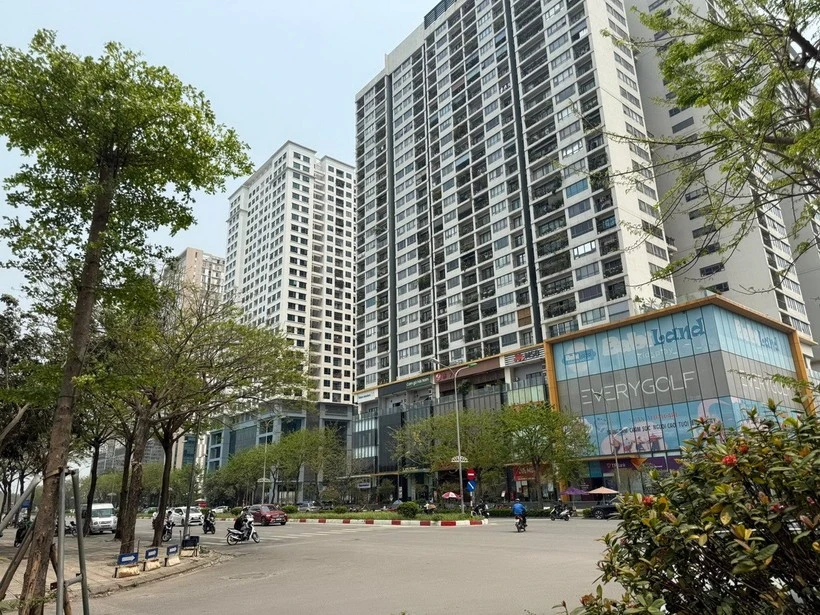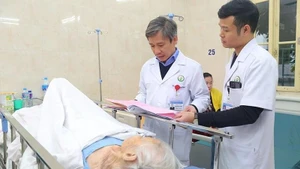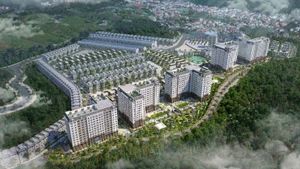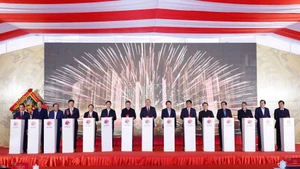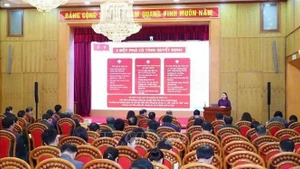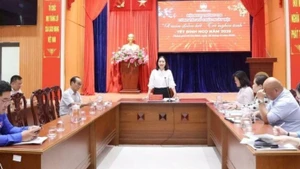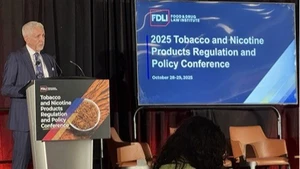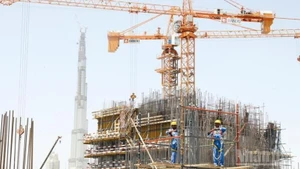The dispatch noted that despite strong and timely measures having been taken, housing and real estate prices in several localities have surged continuously, beyond the affordability of most people. The problem is partly attributed to market information shortages, price gouging, limited supply of affordable commercial housing, and an insufficient number of social housing projects.
To promptly promote investment projects and increase housing supply while tightening market supervision and addressing speculation and price manipulation, the Prime Minister instructed heads of relevant ministries, agencies, and localities to improve institutions, policies, and laws related to housing, real estate, land, planning, investment, construction, credit, and taxation to ensure consistency. Administrative procedures should be further minimised, and power decentralisation enhanced.
He also emphasised the need to review and adjust land use fee regulations to ensure fairness and prevent them from pushing housing and land prices beyond people’s affordability.
The dispatch demands the prompt formulation of breakthrough and favourable mechanisms to attract resources for a stable, healthy, and transparent real estate market, particularly in affordable housing segments suited to average income levels, thereby improving people’s material and spiritual well-being.
Social housing projects must be accelerated to meet or exceed the Government’s target of 100,000 units in 2025, while the management of real estate trading and transfer activities tightened.
The Minister of Construction was assigned to lead the review and perfection of legal documents on housing, real estate business, urban and rural planning, and construction to promptly address emerging difficulties and bottlenecks. The minister is also tasked with reporting the results of the five working groups inspecting and resolving issues related to real estate and housing projects nationwide, especially social housing ones, and guiding localities in determining the number of completed social housing units in line with the Law on Real Estate Business.
Strengthening land price control
The MoC, in coordination with the Ministry of Agriculture and Environment, the Ministry of Finance, and relevant agencies, was directed to finalise the pilot plan for a State-run real estate and land-use rights trading centre and submit it to the Government and Prime Minister within October 2025.
The Government leader also requested the Minister of Finance to report on the real estate tax policy by October 15, and to work with the MoC and relevant bodies to promote digital transformation, ensuring seamless online procedures for real estate transactions, notarisation, taxation, and land transaction registration.
Meanwhile, the Minister of Agriculture and Environment was assigned to complete legal documents on land—particularly those related to planning, land use plans, land allocation and leasing, and land pricing—to remove bottlenecks and strengthen the State's control over land valuation and land use fee collection, ensuring alignment with land regulations and, especially, citizens’ real income levels.
In addition, the Prime Minister asked the Governor of the State Bank of Viet Nam to adopt a flexible and effective monetary policy; enhance inspection and supervision of credit flows into priority sectors, particularly loans for developers and buyers of social housing, worker housing, and affordable commercial housing projects. He underscored the need for the central bank to strictly manage and thoroughly appraise credit for high-priced real estate projects or those showing signs of price manipulation.
